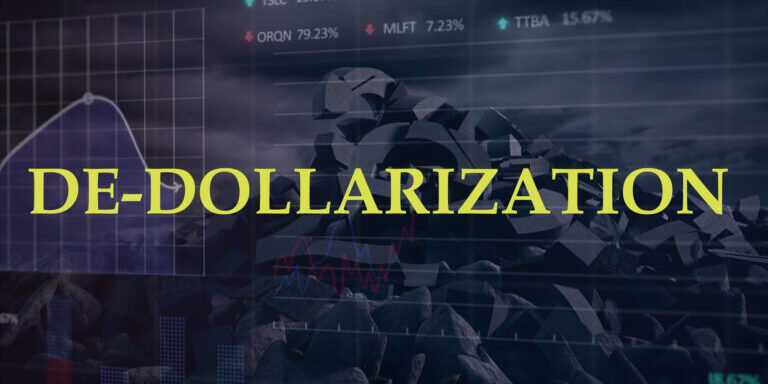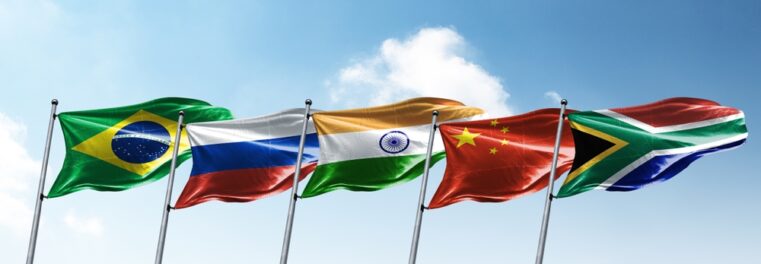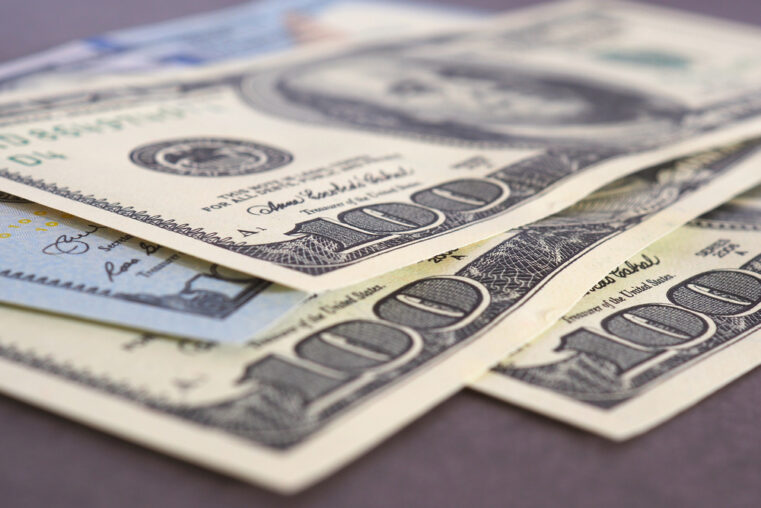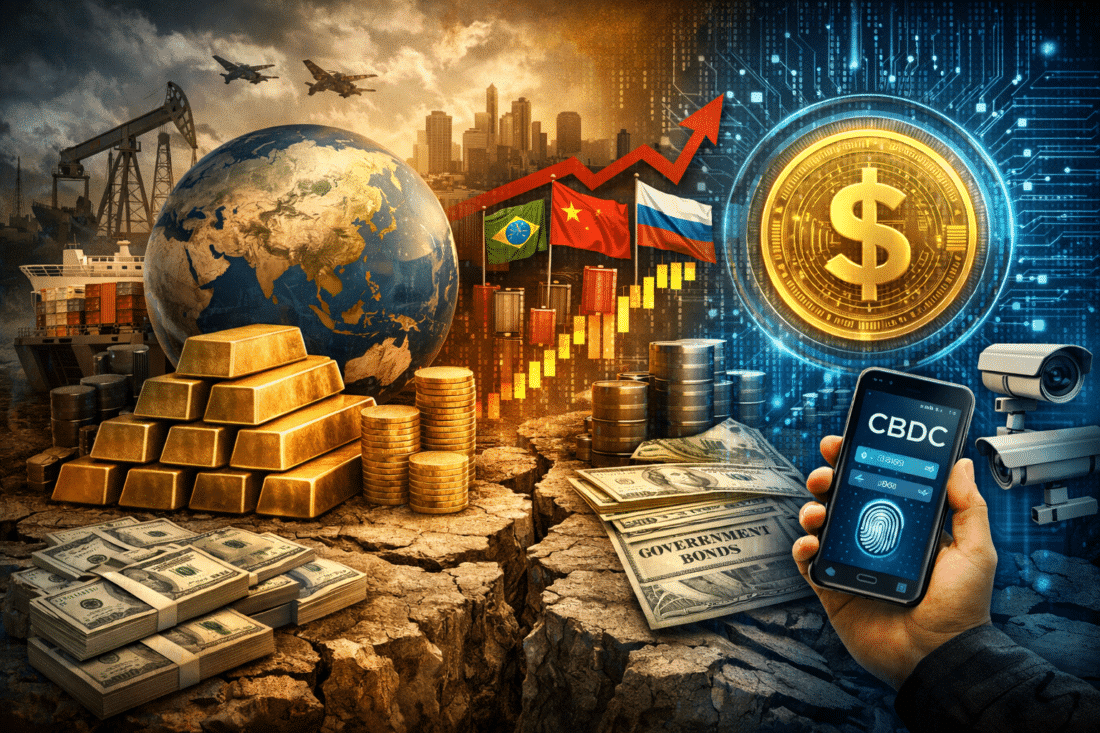
What is De-Dollarization?
What is De-Dollarization?
De-dollarization is all about countries reducing their use of the US dollar for international transactions. They’re looking to diversify their currency reserves, trade in other currencies, and create financial systems less hooked on the dollar. The idea? To dodge the risks of being too tied to one currency, especially the mighty greenback. Let's take a look at the impact of de-dollarization on global economy as well as our own.
Why Would Countries Choose to De-Dollarize?
Causes of De-Dollarization
Several economic conditions may be pushing countries to de-dollarize. The main catalysts include:
- Strengthening Economic Sovereignty: Depending on the US dollar means dancing to the tune of US monetary policy. When the Federal Reserve hikes rates to fight inflation, it can make dollar debts more expensive for other countries.
- Geopolitical Tensions: US sanctions can mess with economies that heavily rely on the dollar. To prevent themselves from ending up in a vulnerable position, several countries, especially neutral ones, want to avoid finding themselves in that situation.
- Need for Diversification: Everyone knows that putting all your eggs in one basket isn’t wise. Diversifying currency reserves can protect against the ups and downs of a single currency. This is particularly crucial considering the US national debt, and the position of vulnerability this places the nation.
- Emerging Markets: Fast-growing economies like China are pushing their own currencies to gain a bigger slice of the global trade. This is particularly true of the BRICS nations, which we’ll discuss in greater detail below.
Benefits of De-Dollarization
The decision to abandon the world’s reserve currency in favor of greater financial independence has both benefits and risks. If done correctly, however, the potential perks may outweigh the downsides to such a move.
- Enhanced Financial Stability: Less exposure to US economic shifts can make for a steadier financial ship.
- Increased Economic Autonomy: More control over local monetary policies means better handling of inflation, jobs, and growth.
- Reduced Sanctions Risk: Less dollar dependency can buffer against the impact of US sanctions.
- Diversified Reserves: Holding a mix of currencies can cushion against the negative impact of one currency's volatility; in this case, the US dollar.
Consequences for De-Dollarizing Nations
It’s not all smooth sailing. There will be transition costs; the implementation of new payment systems and the burden of renegotiating trade deals. The market volatility resulting in this shift will be immediate. Also, not all currencies will offer the same liquidity, stability, and ease of transaction.

Why are the BRICS Nations De-Dollarizing?
BRICS—Brazil, Russia, India, China, and South Africa—are leading the de-dollarization charge. An acronym for five nations, BRICS recently admitted Egypt, Ethiopia, Iran, and the United Arab Emirates and continues to expand. Why are these nations choosing to de-dollarize?
- It’s a Geopolitical Strategy: They want to boost their economic independence and political autonomy. Additionally, this decreasing reliance on the US dollar also stems US influence on global affairs.
- Economic Diversification: More trade within the BRICS bloc can reduce dependence on Western economies and enhance intra-BRICS trade. For example, China and Russia have increasingly and successfully conducted trade in their own currencies.
- Financial Independence: BRICS is setting up its own financial institutions, like the New Development Bank, to sidestep Western ones like the IMF and World Bank (Wikipedia).
How Does De-Dollarization Work?
You’re probably wondering how a de-dollarization strategy is implemented? While there are many approaches nations can take, here are a few key strategies that are currently being implemented.
- Bilateral Trade Agreements: Countries agree to use their own currencies for trade with each other. For instance, China and Russia have signed agreements to trade in yuan and rubles instead of dollars.
- Currency Swaps: Central banks exchange currencies to facilitate trade and investment. The People's Bank of China has established numerous currency swap agreements with other central banks to support the use of the yuan in international trade.
- Diversified Reserves: Central banks increase holdings of alternative currencies like the euro, yuan, or gold. For example, Russia has significantly increased its gold reserves as part of its de-dollarization strategy.
- Domestic Policies: Encouraging the use of local currencies in international transactions and investments. This can involve regulatory changes and incentives for businesses to trade in domestic or alternative currencies.
How Will De-Dollarization Affect the Global Economy?
The impact of de-dollarization on global economy could be profound. The increased use of other currencies can reduce demand for the US dollar, potentially weakening its value. This shift will likely lead to a more multipolar currency system, with several major currencies sharing the role currently dominated by the dollar. Likewise, shifts in the global monetary environment can also create a geopolitical counterbalance to Western economic dominance.
How Will De-Dollarization Affect Nations That Trade In Dollars?
Countries that are heavily reliant on the dollar for trade may face quite a few challenges. Those who need to adapt to new currencies in trade agreements may incur significant costs. They’ll have to update their financial systems, renegotiate contracts, and manage exchange rate risks.
A more dramatic impact would be in economic and geopolitical partnerships. Countries that rely on the dollar may seek closer ties with nations adopting alternative currencies, reshaping global economic alliances.

How Might De-Dollarization Affect Americans Who Hold Dollars?
For American individuals and businesses, the effects could bring more negative outcomes and risks than benefits.
The value of your dollars may become more volatile, affecting travel, imports, and investments. Businesses that import goods may experience a significant increase in costs which can lead to higher domestic prices. Changes in US monetary policy to stabilize the dollar could impact loan and mortgage rates, influencing borrowing costs for consumers and companies. More importantly, Americans may need to diversify their portfolios to hedge against dollar depreciation. This is where alternative currencies and gold can come in handy.
The Worst Case Scenario: How De-Dollarization Can Lead to Inflation or Hyperinflation
Alright, so let's talk about how an influx of dollars from de-dollarization could pump up inflation in the US. Imagine that several countries around the world decide they’re done with holding on to US dollars and US treasury bonds.
Here’s how it could lead to more inflation or even hyperinflation in the US:
Step 1: Countries Dump US Treasury Bonds
When countries decide to de-dollarize, they might start selling off their US treasury bonds. These are basically IOUs from the US government that other countries have been holding onto. If a bunch of countries sell these bonds all at once, the supply of dollars in the market could skyrocket.
Step 2: Influx of Dollars
Now, all those dollars that were sitting pretty in foreign reserves come flooding back into the US. This sudden influx increases the supply of money in the US economy. More money chasing the same amount of goods and services can lead to higher prices, which is inflation.
Step 3: Inflation Takes Off
With more dollars in circulation, the value of each dollar could drop. It’s a classic case of supply and demand—too much supply of dollars reduces their purchasing power. This could make everything more expensive, from groceries to gadgets.
Step 4: Potential for Hyperinflation
In extreme cases, if the dumping of dollars is massive, we could see hyperinflation. This is when prices skyrocket uncontrollably, and the value of the dollar plummets. Think of historical examples like Zimbabwe or Weimar Germany, where hyperinflation made money almost worthless.
Why It Matters
Inflation isn’t just an economic term; it affects real lives. Higher inflation means your money doesn’t go as far as it used to. Savings lose value, and everyday essentials become harder to afford. If hyperinflation were to hit, it could destabilize the economy and lead to severe financial hardship for many Americans.
The Takeaway
De-dollarization is an emerging buzzword that’s been gaining traction. It essentially means that certain countries are working to cut their reliance on the US dollar for trade and finance. So far, the BRICS nations are among the strongest economic powers leading the charge. If successful, this movement could reshape the global economic landscape, impacting everything from exchange rates to international alliances. For Americans, this could mean dealing with more volatile dollar values, higher inflation, and the need to diversify investments. So, pay attention to how the global currency game continues to evolve.












